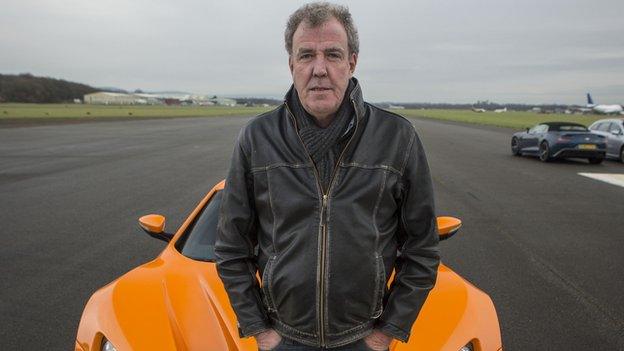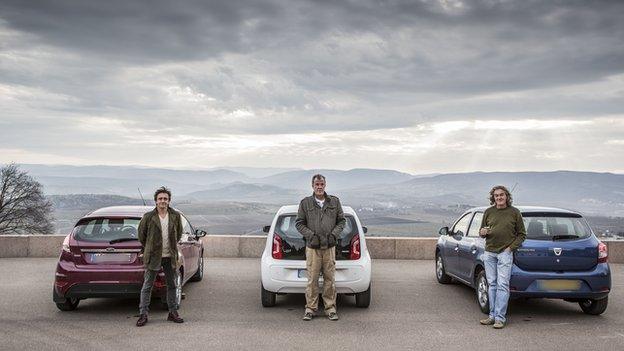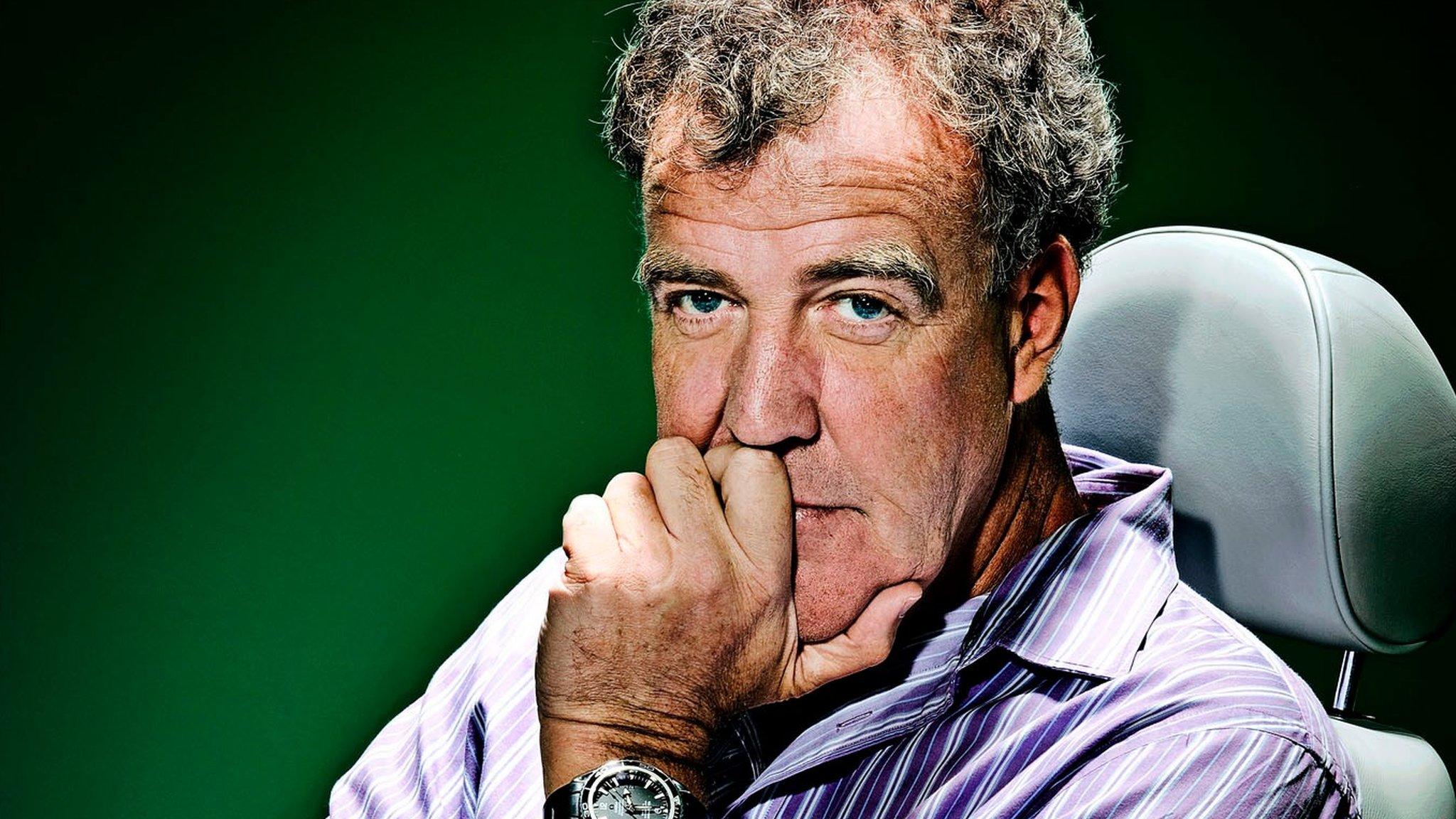Clarkson's suspension follows a string of complaints
- Published

The suspension of Jeremy Clarkson is the latest in a string of complaints surrounding the Top Gear presenter.
Top Gear is one of the BBC's most popular and profitable series, but it has a history of controversy, led by Clarkson.
Last year, the presenter revealed that the BBC warned him he would be sacked if he made "one more offensive remark, anywhere, at any time."
He had been told to apologise for using the "n-word" in a programme out-take.
In the clip, which had been filmed in 2012, the presenter chooses between different models of car by reciting the schoolyard rhyme Eeny, Meeny, Miny, Moe.
After initially denying his use of the word, Clarkson later released a video statement "begging forgiveness" for the error.
Clarkson complained about the final warning in his weekly column in the Sun: "Even the angel Gabriel would struggle to survive with that [threat] hanging over his head."
The presenter has survived several scandals but this is the first time he has been suspended from his position.
'Difficult year'
In December 2014 Clarkson described his "difficult year" during an appearance on ITV1's The Jonathan Ross Show.
It followed an incident in Argentina where the Top Gear presenters and crew were forced to flee the country after trouble erupted over a number plate reading H982 FLK, which some suggested referred to the Falklands conflict of 1982.
The show was also censured by Ofcom in July 2014 for breaching broadcasting rules after Clarkson used a derogatory word for Asian people during the Top Gear Burma Special.
Labour MP Jim Sheridan, who sits on Parliament's culture, media and sport committee, called for him to be sacked.
He said: "Already he's insulted nations, he's insulted disabled persons, he's insulted people with mental illness. Every time he apologises, and every time the BBC say that they've told him to cut it out, and he's not doing it."
"His whole career is littered with apologies, and I doubt very much if indeed he is sorry."

Richard Hammond, Jeremy Clarkson and James May have been the regular presenters on Top Gear since 2003
Top Gear began as a local show on BBC Midlands in 1977 and Clarkson took the helm in 1988.
It was first broadcast in its current format in 2002, when Clarkson was joined by Richard Hammond and, a year later, by James May.
Top Gear is the most watched factual programme in the world according to the Guinness Book of Records.
It has an estimated global audience of 350 million, and is sold to 214 countries.
The programme has three million YouTube subscribers, 15 million Facebook fans, and 1.74 million Twitter followers.
Make or break
The programme acquired a reputation for a reviewing style that could make or break a new car.
Over the years Clarkson's comments have led to a number of complaints by vehicle manufacturers.
Hyundai complained to the BBC in 1998, saying that Clarkson had made "bigoted and racist" comments at the Motor Show in Birmingham.
A decade later, Tesla tried to sue the show for libel after Clarkson said its £92,000 electric sports car did not perform as advertised.
When the case was dismissed, after five years and one appeal, the programme's executive producer Andy Wilman said: "I'd also like to apologise to the judges for making them have to watch so much Top Gear."
The BBC received 1,800 complaints after Clarkson compared lorry drivers to murderers in 2008.
He was cleared of breaking broadcasting codes, with the watchdog claiming that in its view "the presenter was clearly using exaggeration to make a joke, albeit not to everyone's taste".
- Published10 March 2015
